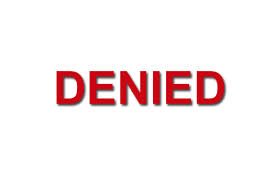Gilead denied patent for hepatitis C drug in India
January 17, 2015 | Saturday | News | By BioSpectrum Bureau
Gilead denied patent for hepatitis C drug in India
(Photo Courtesy: www.insurancekb.com)
The oral drug, which first received regulatory approval in the US in November 2013, and has been priced by Gilead at $84,000 for a treatment course, or $1,000 per pill in the US, has caused a worldwide debate on the pricing of patented medicines.
A study from Liverpool University showed that sofosbuvir could be produced for as little as $101 for a three-month treatment course.
Challenges to some of the most important patent applications on sofosbuvir (a 'patent opposition' - a form of citizen review allowed in many countries) were filed in India by the Initiative for Medicines, Access & Knowledge (I-MAK) and the Delhi Network of Positive People (DNP+) in November 2013 and March 2014.
"The move to reject Gilead's patent application really opens up the playing field, so we hope to now see many other generic companies starting to produce more affordable versions of this drug. The bottom line here is that India's patent law doesn't give monopolies for old science, for compounds that are already in the public domain. Gilead's strategy of charging as much as US $84,000 per treatment for a drug that is predicted to be simple and cheap to produce, and is now un-patentable in India, has been exposed for what it is - seeking to squeeze as much profit out of the sick as possible," said Mr Tahir Amin, lawyer and director of the Initiative for Medicines, Access & Knowledge (I-MAK).
Gilead has signed voluntary licence agreements with multiple generic producers in India, but these agreements impose many restrictions, including which countries can access the drugs produced under these licences, as well as invasive restrictions on medical providers and patients with respect to distribution and use of the drug.
With the patent being denied, other companies that have not signed the licence are now free to produce.
Entry by additional generic manufacturers should increase the open competition needed to bring prices down dramatically, especially in those countries that have been excluded from the voluntary licence agreement, and thereby increase access to the medicine.
"This is a happy day for the millions of people who urgently need hepatitis C treatment across the globe. People with hepatitis C everywhere should be able to have access to this treatment, but millions of our friends in middle-income countries have been left out in the cold by Gilead. This decision provides hope that people in countries that have been excluded from Gilead's licensing deals will be able to access low-cost generic versions of sofosbuvir," opined Mr Vikas Ahuja, Delhi Network of Positive People (DNP+).









